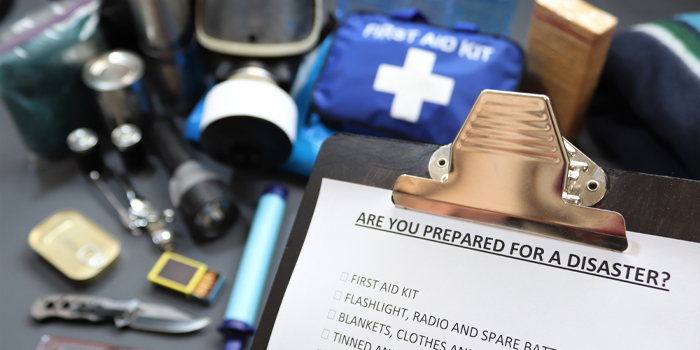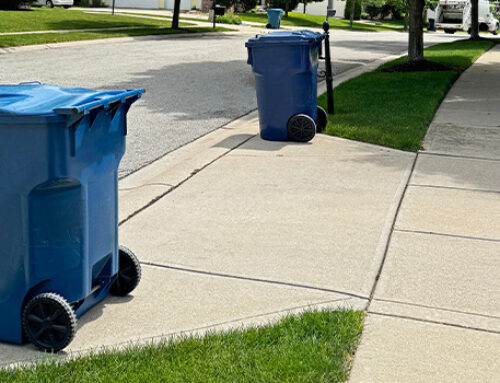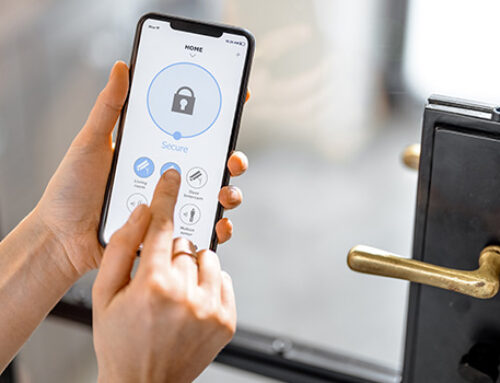Why You Should Prepare
In recent years, hurricanes have caused over $27 billion in damages to affected areas. While coastal regions are more vulnerable, the impacts of hurricanes can extend hundreds of miles inland. From high winds to flooding, it is crucial to stay prepared in the event of a hurricane.
Additionally, the increasing number of storms has led to higher homeowner insurance premiums due to extensive storm damage and rising repair costs. By staying on top of home maintenance and understanding your risk, you have a better chance of protecting your home during a storm.
To help determine your risk level, you can reference FEMA’s National Risk Index Hurricane map, which can be found here.
Prepare Your Home
Hurricane season begins on June 1, but general maintenance to your home can start long before that. Keeping up with maintenance helps reduce tasks when the season starts, allowing you to focus on life-saving measures.
Insurance: If a storm damages your property, it is always good to have the safety of insurance. Check your policy to see what it covers, and what you are at risk of paying. While wind damage is typically covered, flood coverage may cost extra on some plans.
Tree Trimming: Trim and remove any dead or damaged tree limbs that could become projectiles in high winds.
Keep Gutters Clean: With heavy rainfall, it is important that your gutters are working smoothly. Taking rain away from the house prevents water damage to your foundation and siding.
Sandbags: Consider sandbags around entrances to your home to prevent flood waters. Local resources may provide free sandbags.
Have Power: Hurricanes can cause power outages for hours or days. Invest in a portable generator to power important parts of the house. Just remember to keep generators outside of the home, keeping units at least 20 feet away from windows and doors and protected from moisture. Also, never try to power the house wiring by plugging the generator into a wall outlet.
Windows: Consider investing in storm shutters if you reside in a hurricane-prone area. If not, keep plywood handy to board up windows and protect your home from projectiles.
Emergency Plan
When a hurricane approaches, deciding whether to evacuate or stay put is crucial. Through staying informed and prepared with a plan for evacuation, communication, and essential supplies, you can make the best decision for your family and self.
Evacuate or Stay Put?
Whether you evacuate or not is heavily determined by your flood zone. If you live near a body of water or the coast you are more likely to be evacuated if a hurricane begins moving towards your location. Check weather.gov for timely updates and protocol.
Additionally, be aware that traffic may increase when evacuation orders are put in place. If you choose to evacuate, give yourself ample of time to travel. Do not travel during a storm.
Prep a 72-hour Bag: When hurricane season starts, prepare a bag packed with clothes, toiletries, protein bars, water, cell phone chargers, first aid supplies, medications, cash, batteries, hand sanitizer, masks, important documents (birth certificates, passports, etc.) and essential supplies. In the event of an evacuation, this will relieve stress on supplies.
For more information, here is a handy guide to preparing a 72-hour bag: https://www.ready.gov/kit
Plan Your Route: Choose several evacuation paths, both locally and long-distance, as storms can change direction. Aim for flat, inland areas and consider hotels or Airbnb/VRBOs in your destination area. Be aware of local emergency shelters for last-minute refuge.
Family Communication: Hurricanes bring power outages. In the event of being separated from your family, set up a family emergency communication plan. During a natural disaster it is possible that you might find yourself without Wi-Fi or cell phone coverage. Prepare ahead of time so your family knows how and where to reach you in the event of an emergency.
If You Have a Disability: With hurricanes knocking out power grids, things can become less accessible. Utilize resources to make sure you are prepared for the worst-case scenario.
-
- If you use an electric wheelchair or scooter, have a manual wheelchair available for backup.
- Check your medical alert system. Some alerts will require a landline phone, which may not be available during power outages.
- Verify you have your medication. Emergency rooms can be overcapacity in storms and hurricane shelters may not have proper medication stocked.
- For more preparation tips, we recommend reviewing the following article: https://www.redcross.org/get-help/how-to-prepare-for-emergencies/inclusive-preparedness-resources.html
Have Supplies at the Ready
Rather than waiting in long grocery lines and feeling unprepared, stock up ahead of time when hurricane season approaches. Having a storage bin full of supplies that has a long shelf life can keep you at ease.
We recommend stocking up on the following supplies at the start of hurricane season:
- Water
- Food with long shelf-life that can be prepared without electricity.
- Pet food
- Diapers and formula
- Toilet paper
- Feminine hygiene products
- Batteries and power banks
- Flashlights
- Emergency cash
- Medicines and Prescriptions
- Materials for boarding up windows.
- First Aid Kit
Having these items in one area also prepares you for other natural disasters besides hurricanes.
Stay Safe
More than anything else, in the event of a hurricane, it’s important that you stay safe. Here are some key safety tips to follow:
Pay Attention. Invest in a portable radio to hear storm updates without power.
Evacuate. It always feels better to stay home, but if your community is in a mandatory evacuation area, it is important to follow that instruction and get out before storms get to close.
Stay inside. If you are staying home during the storm, stay in an interior room of the home with no windows or skylights.
Fill the Tub. Right before the storm hits, fill your bathtub with water. This provides water to flush toilets and rinse off, so you do not need to use your drinking water.
Keep your refrigerator door closed if you lose power. This will help you keep the contents of your fridge cooler for longer to help delay spoilage. However, be sure to toss any food that may have reached an unsafe temperature.
- The Penny Test: If a storm is about to hit, place a cup of water in the freezer. When it has frozen, place a penny on top. If you lose power, the penny will sink as the ice melts. This can be an indicator of how long your freezer lost power. If the penny is covered in ice, or has sunk to the bottom, food has dethawed and refrozen and is no longer safe to consume.
Turn around. Avoid driving or walking through flood waters. Just six inches of moving water is enough to knock you down and one foot of moving water can sweep your vehicle away.
Be Neighborly
While preparing for a storm, whether it be days or months in advance, check in on your neighbors to see how they are preparing. If your neighbor has a difficult time, offer resources or include them in your emergency plans. In the event of a disaster, it is important for communities to stick together. It may save someone’s life.
Taking the steps to properly prepare for hurricane season will not only ensure the safety of you and your loved ones, but it will help alleviate stress and tension. For more information and a list of hurricane related resources, we recommend reviewing the National Weather Service’s Hurricane Safety Tips and Resources page, which can be found here.







